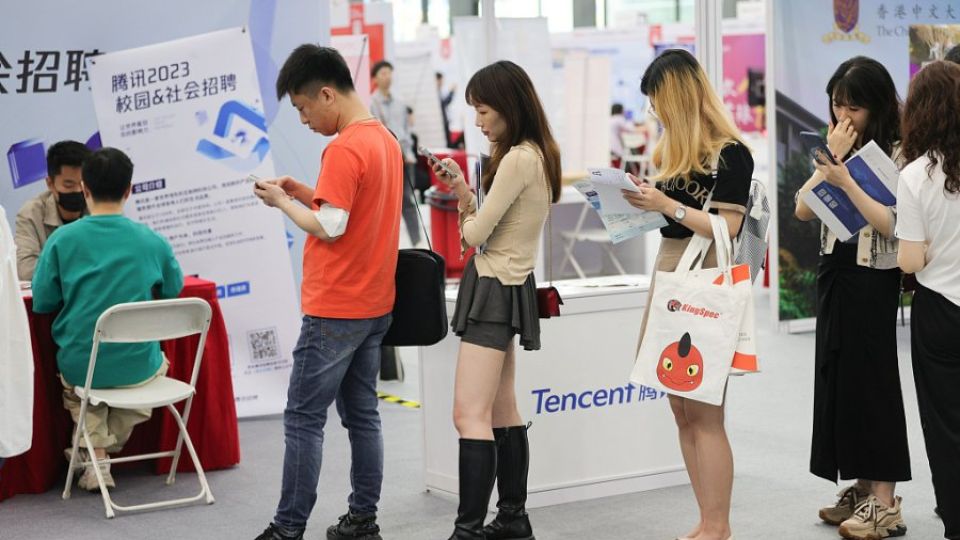March 6, 2024
BEIJING – Buoyed by the success of its job promotion last year, China will continue to channel its efforts and resources to stabilize the job market this year, and prioritize the employment of young people.
According to the Government Work Report delivered on Tuesday, 12.44 million people landed jobs in urban areas in 2023 and the average surveyed unemployment rate in urban areas stayed at around 5.2 percent.
This year, the government aims to create over 12 million new jobs in urban areas and keep the urban surveyed unemployment rate at around 5.5 percent. These two targets are similar to those set last year.
Employment is a key contributor to people’s livelihood and well-being, so the government will consider the job promotion work a priority and leverage fiscal, tax, financial and other policies to stabilize the job market, the report said.
Also, the government will strengthen support to help college graduates land jobs, as this group’s population is expected to reach a record high of over 11.7 million this year.
Many universities and colleges have called on their students to rationally pursue employment needs. For example, Heihe University in Heilongjiang province recently published a proposal on its official WeChat account, urging students who are yet to land jobs to adjust their expectations and make reasonable career plans.
Being a civil servant or landing a job at a government agency is not the only choice for young people, who can seek opportunities in small and medium-sized companies or join the army, the proposal said.
Many other universities such as Zhejiang Sci-Tech University and Fujian Normal University have also urged their students to make reasonable career choices.
Ni Minjing, a member of the National Committee of the Chinese People’s Political Consultative Conference and director of the Shanghai Science and Technology Museum, recently suggested that all companies and government bodies try their best to offer job openings to college graduates.
Ni said the museum is offering 30 positions for recruits this year and he hopes that several college graduates will join the institution.
Guo Sheng, president and CEO of recruitment portal Zhaopin, said the job market has some structural imbalance that is yet to be tackled. For example, some job openings may not suit graduates’ preferences while their working abilities may not meet the requirements of recruiting companies.
While colleges and universities expand enrollment of liberal arts students every year, the demand is higher for science and engineering graduates in the job market, Guo said, highlighting that the number of science and technology-based job openings has been steadily increasing on Zhaopin over the past few weeks.
Promoting the employment of college graduates needs joint efforts from companies, colleges and young people themselves. Colleges can adjust their syllabuses based on employers’ needs while the graduates can seek more opportunities in some second or third-tier cities, he said.
“We suggest that graduates plan their career better and strengthen soft skills on innovation and communication to make themselves more competitive in the job market,” he added.


